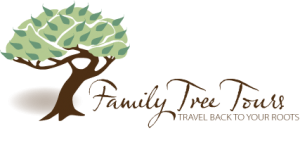I would like to post a story from a “guest blogger” this time. A gentleman who was on our Rhineland trip this past September. He has written several articles for his genealogy society, Fox Valley Genealogy Society of Illinois and I am posting one of them today.
Genealogy Tours
Gene Atkin
Thinking about your immigrant ancestors, have you sometimes wondered who their ancestors in the “old country” were and what their lives were like? It would be fun to travel to the places they came from, but you aren’t “ready” to go there. You don’t know the language they spoke or how to do research “over there”. This was my situation a year ago with respect to my mother’s German-speaking ancestors who had immigrated from Rhineland Prussia and Luxembourg. Like me, you would like to know whether there are cousins, descendants of ancestors who didn’t immigrate. You would like to see buildings the ancestors knew and that might still be standing.
A new genealogy method is evolving to help identify and better understand the ancestors of our immigrant ancestors and their other descendants who did not immigrate. I spent two wonderful weeks in Europe last month touring with a group that included only other genealogists (and some patient spouses). The tour company I traveled with (www.familytreetours.com) asked me to provide well in advance such information as I had about my Germanic immigrant ancestors. With this information, the company’s associate in Germany, a skillful genealogist, used contacts and other sources to identify more of my ancestors’ ancestors and the communities in which they lived, and also to find descendants interested in meeting an American cousin.
Central to the purpose of our travel, the tour company planned individual day trips for tour members to go by train from the group’s hotel to ancestral “home towns.” I went to five, two on an overnight trip. Each time, an English-speaking person met me at a train station and took me, as appropriate, to meet cousins and to local places of genealogical interest. The company even gathered timetables, rail platform numbers, and purchased needed train tickets from tour fees.
The tour I was on included group activities for other days — a day cruise on the Rhine, a scholarly lecture, and visits to an archive, two museums, and several Roman ruins — all of which provided good insights. Nothing is quite like a leisurely river cruise to help one adjust to the change in time zones. The various excursions were timed to provide occasions to learn to use German trains and ticket machines. The passenger trains are electric, go most everywhere, use wonderfully welded tracks that give a smooth ride, and almost always run on time.
For me, the trip was a great way to expand my genealogical horizons. With the tour company handling all the “infrastructure” planning details, all I had to do was follow travel directions, enjoy the people I visited, and find room in my luggage for all the new family trees and books about the local history I collected along the way. If you are inclined to learn more about ancestors “across the pond,” a tour with a company oriented to meeting the needs of genealogists may be just the thing for you.
